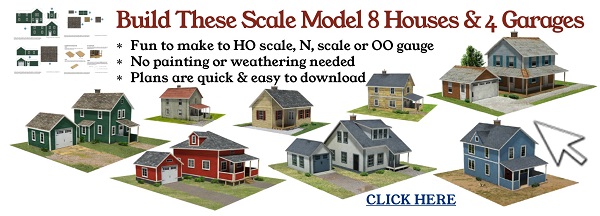
Everything on model trains, model railroads, model railways, locomotives, model train layouts, scenery, wiring, DCC and more. Enjoy the world's best hobby... model railroading!
Most model trains run on low voltage. Unlike the AC electrical circuit in your house, the electricity that moves your locos is DC, ie. Direct Current. The supply to your layout comes by plugging a power pack (also called a transformer) into a wall socket that takes the AC supply, steps it down to the 12-15 volts needed to run the trains and up to 18 volts for the accessories.
The model train transformer converts the output to DC, filters the DC to purify it, then outputs the supply from the terminals on the back of your controller, along a couple of wires to the tracks where it is picked up by your locomotives wheels, turning the motor within. The throttle control varies the voltage to the rails, changing the speed of the motor and consequently the rate your locomotive moves down the track.
DC electricity is directional, so the electricity flows along the wires in a certain direction, and the locomotive moves in the direction set by the directional switch on your controller (or left and right if your controller has a centre off type control knob).
There are, however, exceptions to using DC for trains… if you have Lionel or Marklin, they operate on controlled AC power with 3 rail track.
Leave a Reply